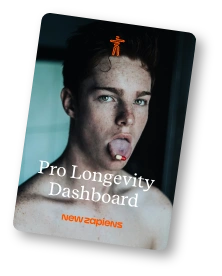
Longevity Magazine
Empower yourself with insights for preventive health, wellness and longevity. Explore our latest articles on fitness, personalized medicine, cutting-edge science and strategies to help you live a longer, healthier life.




4 min read
The scientific approach to health, performance and longevity

7 min read
Personalized longevity: how YEARS is shaping the future of preventive medicine

